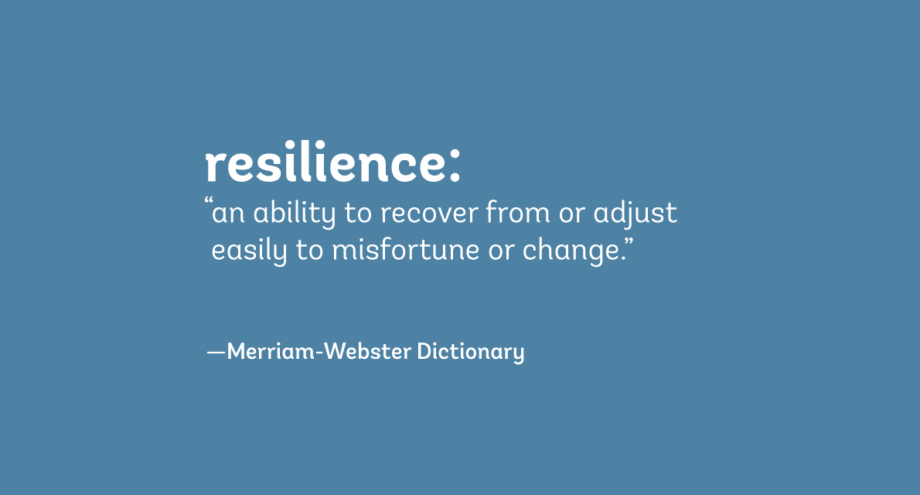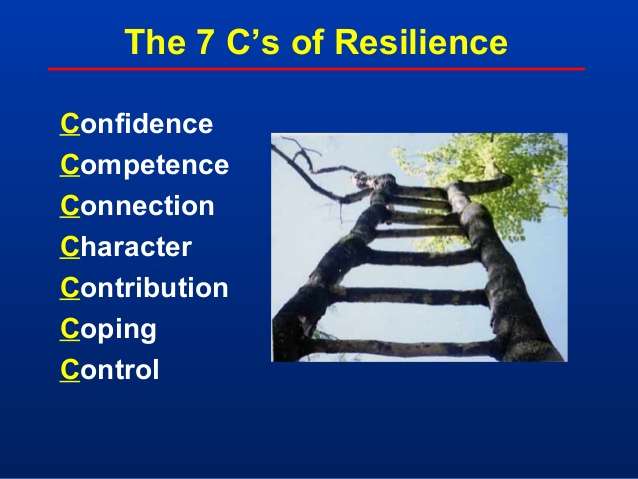For this 11th Snipper Sharing session the topic is on Resilience. The word has more meaning since Covid started. Because virtually everyone is affected and no one saw this coming. So without preparation and given the element of surprise, the current situation presents an unprecedented challenge to all of us. The ones that are likely to survive well would be those who have more resilience. We shall then take resilience to simply mean the ability to recover quickly from difficulties or to be elastic (able to endure prolonged difficulties.
It is therefore easy to understand what resilience is. The issue is how to develop that quality. You would need to imagine resilience as the shield or the antibiotics to all the pressures around us. So we will take a look at the 7 Cs of Resilience. Dr Ginsburg, child pediatrician and human development expert, proposes that there are 7 integral and interrelated components that make up being resilient – competence, confidence, connection, character, contribution, coping and control.
Resilience #1 is Competence – is the ability to know how to handle stressful situations effectively. It requires having the skills to face challenges and having had the opportunity to practice using these skills so that one feels competent in dealing with situations. It can also mean that you need to have a certain set of skills, preferably more than 1, that can be recognized as your competencies. A person with several skills eg having multiple qualifications or know-how/expertise etc will definitely have higher chances of making good despite tough times. So this is where you need to keep learning so that those things you know will become your first C of resilience. Understandably those without unique or strong skills will not be able to withstand challenges and would succumb to diminishing self-esteem.
Resilience #2 is Confidence – the belief in one’s own abilities and being positive in the face of challenges. We all gain confidence by being able to demonstrate our own competence in real situations. Confidence is within us. High or low depends on our sense of self-worth and purpose. If you know what you are made of and you know what you are getting, you will have confidence. it is tied to your self-esteem which is the result of all the feel-good you must have (if don’t, find them) in yourself. If you do not have confidence, it does not matter if the whole world has it. If you have confidence, it does not matter if the people around you do not.
Resilience #3 – Connection – people with a tight inner circle and expandable outer circle strive better during tough times. The quality of your friends and community will give you a stronger sense of security and a sense of belonging. which is why you must always choose the right kind of all-weather friends. Remember the maxim – your network is your net worth. Both quantity and quality count in establishing a network as you would not know which of your friends today will be your lifesaver tomorrow.
[10:14 am, 07/07/2021] Rayan Daniyal: Resilience #4 is Character – people with “character” enjoy a strong sense of self-worth and confidence. They are in touch with their values and are comfortable sticking to them. They can demonstrate a caring attitude towards others. They have a strong sense of right and wrong and are prepared to make wise choices and contribute to the world. In fortify your character, you must have kindness. Knowing what is right and wrong is not enough if you do not have kindness. In fact, doing what is kind is more important than doing what is right. Be kind always, it has a way of being the best testimony for one’s character.
Resilience #5 is Contribution – if you have been making contributions (in whatever form, cash or kind) that you would have created a better and kinder world for yourself as those deeds that you have done have a way of coming back to you especially in times of need. Your contribution is like investment, you can ‘cash in’ on your investment when you are squeezed in bad times. The more you contribute, the more you will be remembered. Generosity flies like a boomerang.
Resilience #6 is Coping – having the emotional strength to combat stress. You can develop your coping ability here if you can minimize your downtime ie to relieve yourself from sadness or anything related to the negative feelings by filling up your time with personal or social activities that can take your mind away. Do not entertain your moodiness as it has a way of growing inside you if you allow it to. Have a hobby or a buddy. Try not to be alone and always focus on who you must survive for eg your loved ones.
Resilience #7 is Control – when you realize that you have control over your decisions and actions, you are more likely to know how to make choices in a way that they can bounce forward from life’s challenges. There is no such thing as “I have no choice”. You always have a choice. it is a matter of seeing them and choosing one. That choice process is very empowering. It not only enables you to have control over your life but it also teaches you about accountability and responsibility (over the choices you make). Once you know you can always create choices, even when it looks like none to begin with, you will have less fear of adversity because you know further choices will lead you out to safety.
So there you go. None of the 7Cs of Resilience is harder than hiking your way up at Bukit Timah. They are doable. People who have a low level of resilience are not because they are mentally and/or emotionally weak but because they do not have the knowledge of the 7Cs. If they do, they will be resilient. And as for all of us who are practising Muslims, resilience is made easier with our faith in God.
Thank you for following today’s topic. I hope it will give you the motivation to increase your resilience capacity. The world is in need of more resilient people. A strong you will be a useful you.



